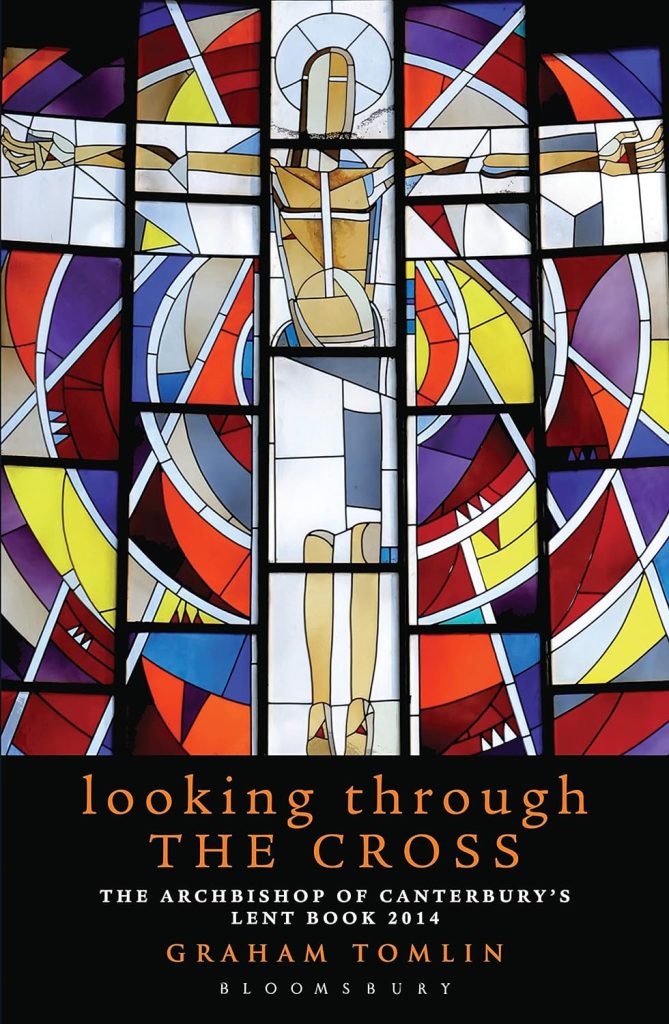This Tuesday we are reading through Chapter 5 – The Cross and Suffering. Suffering and death are the great theological and existential mysteries of the human condition for how can a good all powerful god permit suffering? The Scriptures first propose that great question in the book of Job. If you have time, please read Job 1-2 which sets up the question and Job 38-42 where God “answers” the question of why Job suffered. In his answer, God severely questions Job’s standing to even raise the issue and bookends with Job repenting of ever even asking God why. Within the Incarnation and ultimately the Cross, however, we see a different answer to the question. At the Cross, we see a God who suffers as we suffer and a God who feels as abandoned as we do. We have a God who has fully taken upon himself our human condition. In looking at the Cross, we know that God is with us because he has become one of us.
The Cross, however, doesn’t merely provide us with a vertical (Divine-to-Human) understanding of suffering but also provides us with a horizontal (Human-to-Human) understanding of suffering. In Book IV of the Confessions, Augustine tells that when he was a young man (and not a Christian) one of his closest childhood friends (who was a Christian) died. Augustine says that his “heart was utterly darkened by this sorrow and everywhere I looked I saw death . . . And if I said ‘put your hope in god,’ it very properly disobeyed me, because that dearest friend I had lost was an actual man, both truer and better than the imagined deity I was ordered to put my hope in.” (4.4.9). After his conversion, however, Augustine looks back on his friend’s death through the lens of the Cross. Through that lens, Augustine realizes that although death brings sorrow for the loss of a friend, a friend in Christ is never truly lost. For he says “Blessed is the one who loves You and who loves his friend in You; for he alone loses nothing dear to him. For if all are dear in him, who can be lost.” (4.9.14). In the Cross, a human-divine-human relationship cannot be overcome by suffering and death.
As you read through this chapter, please pay close attention to the brief discussion on page 113 of Patripassianism which is also called Modalistic Monarchianism. The early church struggled with the two contradictory notions of how Christians can maintain the oneness of God – Hear O Israel, the Lord is One, the Lord is God (Deut. 6:4) – with the understanding that the Son (and the Spirit) are also God. Monarchians were those who maintained the monarchy or oneness of God by identifying the Father with the Son as being one and asserting that God simply appears in different modes. (For example, I am a father, son, and brother.) But at the cross, modalism breaks down because if the Son suffers, and if the Son and the Father are identical, then the Father (patri) also suffers (passian). (If I die in my capacity as a son, then I also die in my capacity as a father and brother.) It was against this teaching that the word “Trinity” was first used in Christian thought in Tertullian’s treatise Against Praxes. Praxes was a modalist who reasoned out that because the Father and the Son were both God and God is One, that therefore the Father and the Son were necessarily identical which means that the Father suffered on the cross. In arguing against Praxes, Tertullian says that there is “the Unity into a Trinity” – one God in “Three Persons.” (ch. 2). Therefore, the Son and the Father are the same God, and yet only the Son and not the Father suffers. It is this formulation by Tertullian that later became doctrine at the Council of Nicaea more than a century later.
Dinner at 6. The menu is pasta primavera. Discussion about 6:45. Hope to see you here.
When it was noon, darkness came over the whole land until three in the afternoon. At three o’clock Jesus cried out with a loud voice, “Eloi, Eloi, lema sabachthani?” which means, “My God, my God, why have you forsaken me?” When some of the bystanders heard it, they said, “Listen, he is calling for Elijah.” And someone ran, filled a sponge with sour wine, put it on a stick, and gave it to him to drink, saying, “Wait, let us see whether Elijah will come to take him down.” Then Jesus gave a loud cry and breathed his last. And the curtain of the temple was torn in two, from top to bottom. Now when the centurion, who stood facing him, saw that in this way he breathed his last, he said, “Truly this man was God’s Son!”
Mark 15:33-39

